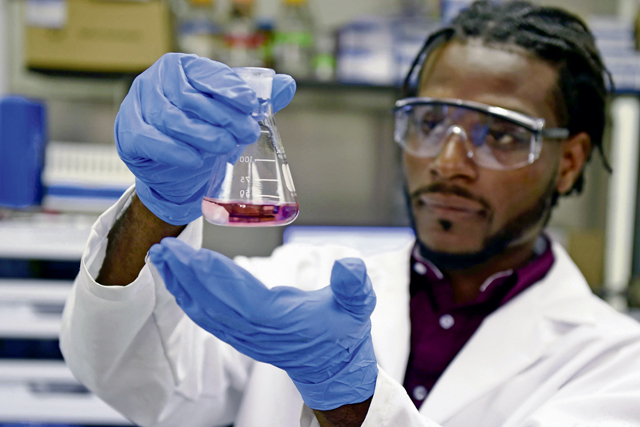
Maintaining technological superiority for the nation is a top goal for the Defense Department, and ensuring that happens means DOD must seek out diverse input from a variety of sources, including researchers at historically Black colleges and universities, as well as minority-serving institutions, also known as HBCU/MIs, David A. Honey, the deputy undersecretary of defense for research and engineering said.
“As the federal department with the largest research and development investment, the DOD must continue to make strides in removing the barriers of equal opportunity in contracting and research partnerships,” Honey said. “This begins with developing an inclusive culture to help build trusted relationships between our university-operated contract laboratories and the HBCU/MI community.”
The undersecretary spoke today during the National Academies of Sciences, Engineering, and Medicine’s Town Hall Series, which is funded by the Office of the Secretary of Defense through the HBCU/MI program.
The department has 14 university-affiliated research centers, or UARCs, which Honey said serve as a critical element of its innovation base. They also provide some of the independent and objective scientific and technical expertise that the department relies on to develop and maintain the nation’s technological superiority.
“These research centers act as trusted advisors to the DOD by utilizing their core competencies to address the department’s priorities,” Honey said.
Already, Honey said, the department is working to build more partnerships between its UARCs and HBCU/MIs. One example of that is a pilot program at the University of Maryland, College Park’s Applied Research Laboratory for Intelligence and Security.
That UARC now has a partnership with three HBCU’s, including Howard University and the University of the District of Columbia in Washington, D.C., as well as Morgan State University in Baltimore, he said.
“[They] are supporting research projects addressing the modernization priorities established by the DOD, to include 5G, artificial intelligence and machine learning, cyber assessments, and the chat bot testbed, which will explore the deployment of a multilingual solution that is usable for understanding problems in influence information operations and insider threats,” he said. “I’m very confident that additional partnerships like this will continue to be explored and established in the future.”
To keep building and maintaining technological superiority, DOD will continue to work with universities, including HBCU/MIs, to ensure the best talent is tapped to meet the needs of the nation, Honey said.
“We are striving to level the playing field for all research institutions, so that the best possible expertise is made available to the department,” Honey said. “The DOD strives to harness the technological and scientific knowledge of a community that represents the wide-ranging backgrounds of the American people.”


